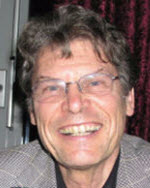AAI In Memoriam

Thomas Jungi
AAI member and prominent veterinary immunologist
Thomas W. Jungi, Ph.D. (AAI '79), a professor at the University of Bern, Switzerland, died earlier this year. Jungi was instrumental in developing methods to culture ruminant macrophages and in phenotyping and functionally assessing these cells, and his work illuminated important differences among the cells of rodents, humans, and ruminants. Dr. Jungi also trained numerous scientists in the areas of canine and feline immunology and contributed to colleagues’ studies in equine immunology.
The following tribute was co-authored by Jungi colleagues Gottfried Alber, Ph.D., AAI ’97, University of Leipzig, Germany; Ernst Peterhans, Ph.D., University of Bern, Switzerland; and Dirk Werling, Ph.D., Royal Veterinary College, University of London, who are among Dr. Jungi’s many grateful mentees. AAI gratefully acknowledges the submission.
* * * * * *
On March 23, 2016, Prof. Thomas Jungi died after a long illness.
Many colleagues remember Thomas as a conscientious scientist who had a huge impact on the field of veterinary immunology through publication of fundamental work on the generation, characterization, and functional description of macrophages in animals of veterinary importance. Thomas was enthusiastic, curious, persevering, and persistent—and ever-so critical toward his own work.
Thomas was gifted with a real sense of humor, which was accompanied by a distaste for the hierarchical structures intrinsic to academia. Once, following a seminar, Thomas was asked by a young Ph.D. student about why he worked on cells derived from animals and not from mice. Thomas laughed and replied, “This is one of the best questions I ever had after a seminar.”
Thomas studied zoology at the University of Zurich (Switzerland), writing his diploma thesis on the sensory system of insects. This study led to a research stay in Tunisia, where he examined the visual orientation of the Sahara Desert ant, Cataglyphis bicolor—an area of inquiry far afield of the veterinary immunology research for which he would later become so prominent.
It was upon undertaking his Ph.D. studies at the Swiss Institute for Allergy and Asthma Research (SIAF; in Davos), involving studies about the chemotaxis of leukocytes, that his interest switched to immunology. After postdoc positions at the Trudeau Institute for Biomedical Research and the J. A. Baker Institute for Animal Health at Cornell University, he returned to SIAF as a senior scientist. In 1982, he was appointed group leader at the Institute of Clinical-Experimental Tumour Research at the University of Bern. In 1984, a fateful meeting with Ernst Peterhans resulted in the establishment of the Institute of Veterinary Virology at the university and Thomas’ appointment as head of the Immunology Unit at the university’s Faculty of Veterinary Medicine.
Thomas was very interested in developing new ways of teaching and had already worked as a biology teacher in multiple schools during his undergraduate years. His enthusiasm for teaching quickly transferred to his new work area. He designed and developed a new curriculum for (veterinary) immunology teaching in Bern, an undertaking in which he collaborated with colleagues at the University of Zurich’s Faculty of Veterinary Medicine for the purposes of establishing an overarching Swiss veterinary immunology curriculum.
Thomas played a leading role in establishing lectures within his department while also organizing practical classes for students of other disciplines that illuminated the limitations and peculiarities of the murine immune system. He initiated meetings where young researchers could present their data while also honing their presentation skills in a friendly environment.
Within the Veterinary Immunology Workgroup of the German Society for Immunology, Thomas advocated the exchange of teaching material among different institutions and the pursuit of a coordinated approach to veterinary immunology teaching within the German-speaking parts of Europe. His enthusiasm for teaching was further reflected in his development of an interactive veterinary immunology teaching compact disc, as well as in the publication of Clinical Veterinary Immunology (Enke Publishing Company), which combined basic immunology with descriptions of clinical cases.
Thomas’ research focused on macrophages of different species, which paved the way for further investigations on host-pathogen interaction. This was especially important in the area of virology, where researchers developed the ability to assess the impact of a macrophage infection under defined conditions. The productivity of Thomas’ group in this area is reflected in more than 100 publications and funding obtained from the Swiss National Science Foundation, the European Union, and other funding bodies—establishing his small group as a “five-star” group in international evaluations. His laboratory spawned many scientists now working in senior positions within academia and industry. Thomas’ own work earned him a nomination for the Distinguished Veterinary Immunologist Award.
We are saddened by the long illness and untimely passing of Thomas, but he will stay alive in our memory. Thomas loved life and the company of others. He influenced the paths of so many and enriched our shared past. We will always be grateful for this.